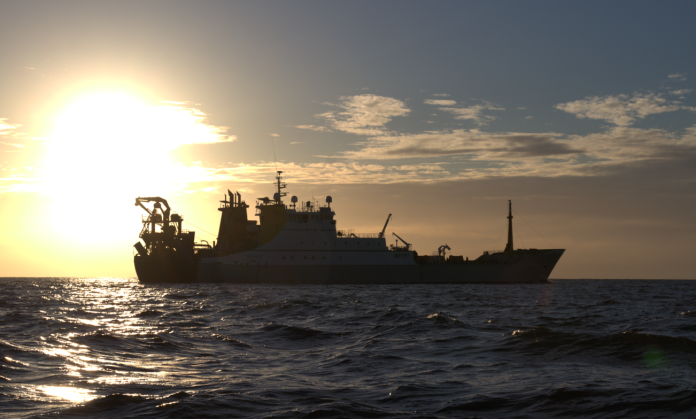The fishing industry’s role in protecting the marine environment
January 7, 2025
Phil Haslam, Managing Director of the North Atlantic Fishing Company, argues that the fishing industry must delicately balance its essential food production role with the need to protect the marine environment
The fishing industry plays a crucial role in global food security and economic stability – a role that’s highlighted by the fact that around 61.8 million people worldwide are employed in the sector.
Therefore, we must do all we can to maintain the long-term viability of the marine environment. Oceans cover around 71% of the earth’s surface and are home to some of the planet’s most biologically diverse ecosystems. They provide food and employment while contributing to oxygen production and climate regulation.
So, while it can be a delicate balance to maintain, as fishers, we know it’s our responsibility to protect marine ecosystems so that future generations can continue to benefit from these vital resources. At the same time, we must ensure we continue to meet global food demands.
The economic lifeline of healthy oceans
The maritime economy is vast and diverse, encompassing industries such as marine shipping, tourism, offshore energy, and international fisheries. Marine shipping alone accounts for trillions of dollars in global trade, as approximately 90% of the world’s goods are transported via the ocean.
Ocean tourism, another trillion-dollar industry, drives significant economic growth, particularly in coastal nations where visitors are drawn to pristine beaches and vibrant marine life. Offshore energy, including sectors like oil, gas, and wind, also plays a pivotal role in the maritime economy.
Furthermore, the global fishing industry, valued at over $220 billion annually supports millions of livelihoods, especially in coastal regions that rely heavily on the ocean for employment, food security, and trade.
In coastal regions worldwide, healthy marine ecosystems are fundamental to sustaining these critical industries and maintaining economic stability. Degradation of marine ecosystems due to human activities – such as overfishing, pollution, and climate change – poses significant economic risks, threatening local communities and the broader global economy. Therefore, the marine industry is responsible for ensuring long-term ecological balance, as preserving the health of our oceans is vital for securing economic stability and sustaining livelihoods for future generations.
Ensuring food security sustainably
The marine ecosystem also plays a crucial role in global food security, with over 3 billion people depending on fish as their primary source of protein. As the global population continues to rise – from the current 8 billion to an estimated 8.5 billion in 2030, 9.7 billion in 2050, and around 10.4 billion people during the 2080s – the demand for affordable, high-protein food will grow exponentially.
Fish, particularly pelagic species, provide a cost-effective and nutritionally rich food source. They offer essential nutrients such as long-chain omega-3 fatty acids, riboflavin, iron, and calcium while also being low in cholesterol. For developing populations, increasing access to fish can significantly enhance nutritional intake and improve overall health, making the conservation and sustainable management of marine ecosystems vital to addressing the food needs of a growing global population.
Championing sustainability in fishing and protecting the marine environment
As fishers, we recognise that we are responsible for protecting this invaluable resource and ensuring its sustainability for future generations. This means conserving marine biodiversity and playing an active role in driving climate resilience. Sustainability must remain a core principle, ensuring fish stocks are responsibly managed, bycatch is minimised, and ecosystems can thrive.
The UK fishing industry stands as one of the best-managed and most regulated in the world, with scientific evidence directly influencing decisions in fisheries and marine environment management. Vessels that target quota species strictly adhere to annual quota allocations set by the Government derived from the International Council for the Exploration of the Sea (ICES) stock status advice, including a recommended yearly Total Allowable Catch (TAC).
In making their recommendations, ICES factors in the breeding stock’s biomass, the broader ecosystem services provided by the fish species, and trends in fishing pressure on the stock. This helps to determine a balance between environmental limits and food production through fishing.
As the fishing industry invests in the latest technology, it aims to become increasingly fuel-efficient and minimise its environmental impact, particularly in reducing carbon emissions. This includes real-time fuel monitoring, lighter, more efficient nets, and imaging systems to optimise selectivity, reduce energy use, and support ecosystem balance by increasing the efficiency of the harvest while minimising risk to juvenile fish and other non-target species.
With continued advancements in technology and research, efforts to achieve the highest levels of sustainability will continue, all with the intent of helping protect the marine environment.
Looking to the future
So, while the ocean remains a vast resource, it’s by no means limitless. The fishing industry has a vested interest in protecting the marine environment to assure global food security, both now and in the future.
By embracing sustainable practices, contributing to scientific research, and prioritising the health of marine ecosystems, responsible fishing businesses can continue to provide essential nutritional and economic benefits while helping to preserve the health of our oceans and seas for generations to come.
Search
RECENT PRESS RELEASES
Related Post




